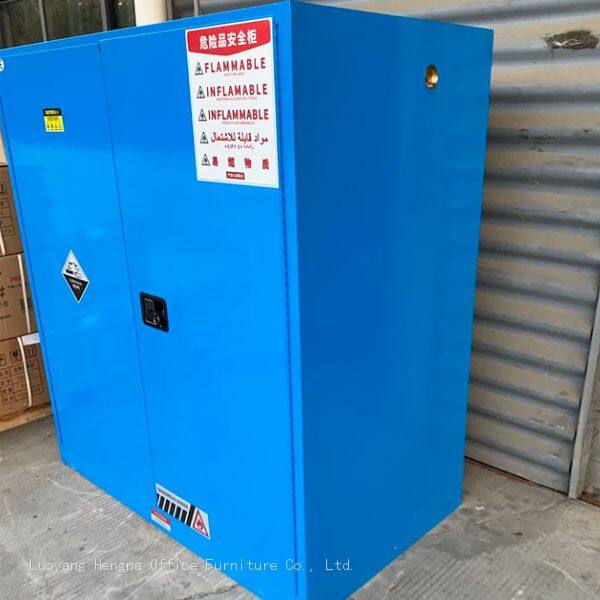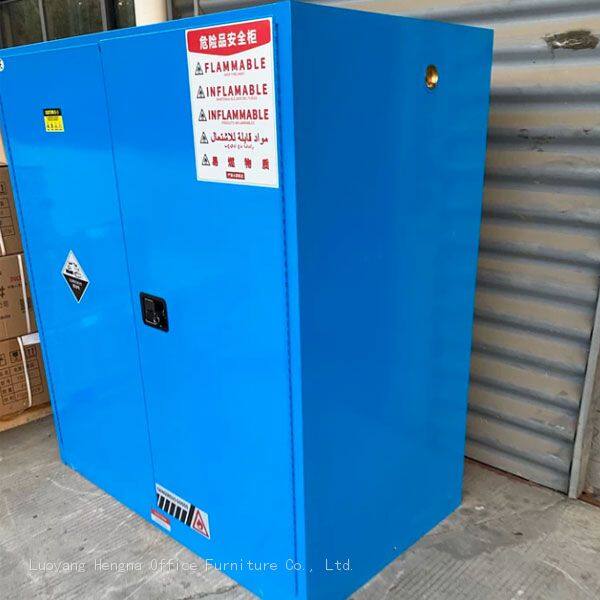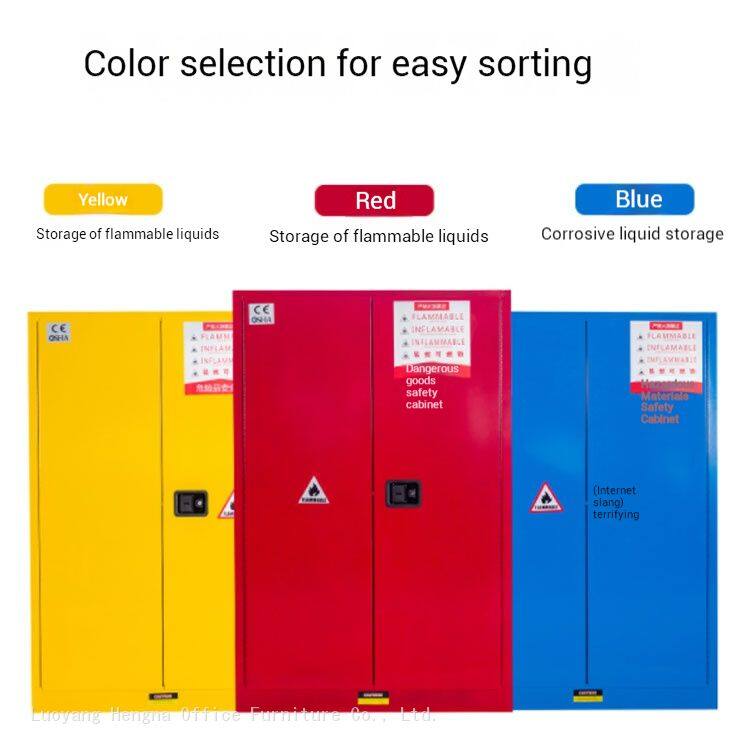Home > Blog > Innovation in Safety Storage: Engineering Breakthroughs That Transform Hazard Management
-
 Sarah
Hi there! Welcome to my shop. Let me know if you have any questions.
Sarah
Hi there! Welcome to my shop. Let me know if you have any questions.
Your message has exceeded the limit.

Innovation in Safety Storage: Engineering Breakthroughs That Transform Hazard Management
2025-10-28 15:51:20
Safety storage cabinets have undergone remarkable transformation over the past decades, evolving from basic metal containers to sophisticated engineering solutions. This evolution reflects deeper understanding of chemical behavior, material science, and workplace safety requirements. Today’s cabinets incorporate multiple engineering disciplines—materials science, fluid dynamics, thermal management, and structural engineering—to create comprehensive protection systems.
Historical Development Timeline:
1960s: Basic metal lockers with simple locks
1980s: Introduction of double-wall construction
1990s: Advanced ventilation and spill containment
2000s: Integrated safety features and monitoring
2020s: Smart systems with IoT connectivity
Materials Science Revolution: Advanced Construction Technologies
Steel Innovation: Beyond Basic Protection
The cold-rolled steel used in modern cabinets represents significant advancement over conventional materials. This steel undergoes specialized treatment processes:
Galvanization: Zinc coating for corrosion resistance
Heat Treatment: Enhanced structural integrity
Surface Finishing: Chemical-resistant coatings
Precision Forming: Consistent wall thickness and tolerances

Insulation Engineering: The 40mm Air Gap Advantage
The strategic 40mm spacing between double walls creates multiple protective benefits:
Thermal Barrier: Slows heat transfer during fire exposure
Structural Rigidity: Increases cabinet strength by 40%
Acoustic Damping: Reduces vibration-induced stress
Pressure Equalization: Prevents seal failure
Mechanical Engineering Excellence: Advanced Door and Lock Systems
Three-Point Locking Mechanics
The three-point linkage system represents sophisticated mechanical engineering:
Force Distribution: Even pressure across door surface
Alignment Precision: Maintains seal integrity over time
Security Enhancement: Multiple engagement points
Durability Design: Reduced wear and maintenance
Self-Closing Door Technology
Advanced door mechanisms incorporate:
Controlled Closing Speed: Prevents sudden door slam
Manual Override: Emergency access capability
Seal Compression: Consistent gasket pressure
Wear Compensation: Automatic adjustment over time
Fluid Dynamics: Advanced Ventilation Engineering
Flame Arrestor Technology
Modern ventilation systems incorporate sophisticated flame arrestors:
Quenching Distance: Precise spacing calculations
Flow Optimization: Balanced air exchange rates
Debris Prevention: Filtered vent designs
Pressure Regulation: Automatic equalization
Airflow Management Systems
Strategic ventilation design includes:
Convection Control: Natural airflow optimization
Forced Ventilation: Active air circulation options
Filtration Integration: Air quality maintenance
Pressure Differentials: Containment enhancement
Smart Technology Integration: The Digital Safety Cabinet
Sensor Technology Evolution
Modern cabinets incorporate multiple sensing systems:
Temperature Monitoring: Real-time thermal tracking
Humidity Control: Environmental condition management
Leak Detection: Liquid presence sensing
Door Position Monitoring: Access control integration

Connectivity Features
Advanced systems offer:
Network Integration: Facility management connectivity
Remote Monitoring: Off-site status tracking
Alert Systems: Automated notification capabilities
Data Logging: Historical performance tracking
Customization Engineering: Industry-Specific Solutions
Sector-Specific Modifications
Different industries require specialized adaptations:
Electronics Manufacturing:
Clean Room Compatibility: Particle control features
ESD Protection: Static discharge prevention
Chemical Purity: Non-reactive interior surfaces
Automotive Industry:
Large Container Access: Oversized door openings
Heavy-Duty Construction: Enhanced durability
Workflow Integration: Ergonomic design features
Chemical Processing:
Corrosion Resistance: Advanced material protection
High-Temperature Operation: Thermal management
Specialized Ventilation: Custom airflow solutions
Performance Optimization: Engineering for Efficiency
Space Utilization Engineering
Smart design maximizes storage efficiency:
Adjustable Shelving: Flexible configuration options
Modular Design: Expandable storage capacity
Ergonomic Access: Optimized user interaction
Footprint Efficiency: Maximum storage per square foot
Energy Efficiency Features
Modern cabinets incorporate:
Passive Temperature Regulation: Reduced energy consumption
Optimized Ventilation: Balanced airflow without excessive energy use
Smart Controls: Automated system optimization
Low-Power Electronics: Energy-efficient monitoring systems
Future Engineering Directions
Emerging Technologies:
Nanotechnology Coatings: Enhanced chemical resistance
Advanced Materials: Composite construction options
AI Integration: Predictive maintenance capabilities
Robotics Compatibility: Automated handling systems
Sustainable Design: Environmentally conscious engineering
By understanding these engineering innovations, organizations can appreciate how modern safety storage cabinets represent sophisticated solutions that go far beyond simple storage containers, providing comprehensive protection through advanced engineering principles.
Tags: Innovation in Safety Storage, Transform Hazard Management

